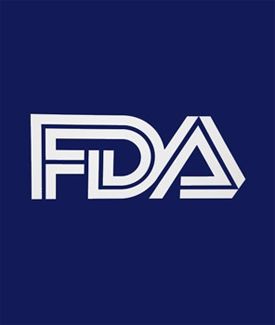FDA Approves Frontline Cabozantinib for Advanced RCC
The FDA has expanded the label for cabozantinib (Cabometyx) to include first-line treatment of advanced renal cell carcinoma regardless of treatment status. Cabozantinib was initially approved in patients who had previously received anti-angiogenic therapy.
The drug is approved for advanced RCC regardless of treatment status

The US Food and Drug Administration (FDA) has expanded the label for cabozantinib (Cabometyx) to include first-line treatment of advanced renal cell carcinoma (RCC) regardless of treatment status. Cabozantinib was initially approved in patients with RCC who had previously received anti-angiogenic therapy.
The expanded label for cabozantinib was based on results from the phase II CABOSUN trial in patients with previously untreated RCC. Results from CABOSUN presented at the 2017 European Society for Medical Oncology (ESMO) Congress in Madrid, and published in the Journal of Clinical Oncology, showed that cabozantinib reduced the risk for disease progression or death by more than half compared with standard of care sunitinib in patients with previously untreated disease.
The results were presented by Toni K. Choueiri, MD, director of the Lank Center for Genitourinary Oncology at the Dana-Farber Cancer Institute in Boston, who said that cabozantinib represented a potential “new treatment option for physicians to treatment patients in the first-line advanced RCC setting.”
CABOSUN included 157 patients with advanced disease and randomly assigned them to cabozantinib 60 mg once daily or sunitinib 50 mg once daily for 4 weeks on and 2 weeks off.
Median progression-free survival was more than 3 months longer in patients assigned cabozantinib compared with sunitinib (8.6 vs 5.3 months). Independent radiology review committee analysis showed a 52% reduction in the rate of disease progression or death (hazard ratio, 0.48; 95% CI, 0.31–0.74).
Grade 3/4 adverse events occurred in 68% of patients assigned cabozantinib and 65% of patients assigned sunitinib. The most common grade 3/4 events for cabozantinib were hypertension, diarrhea, hyponatremia, hypophosphatemia, palmar-plantar erythrodysesthesia, fatigue, increase ALT, decreased appetite, stomatitis, pain, hypotension, and syncope. A similar number of patients on both arms of the study discontinued therapy due to adverse events.
“We at the Alliance for Clinical Trials in Oncology are very gratified that the CABOSUN study supported the approval of Cabometyx for the potential first-line treatment of all patients with advanced RCC. This trial exemplifies how NCI-sponsored studies can be efficient, accrue rapidly, and yield results highly relevant to the field,” said Michael J. Morris, MD, medical oncologist at Memorial Sloan Kettering Cancer Center, and Chair of the Alliance Genitourinary Committee, in a press release.